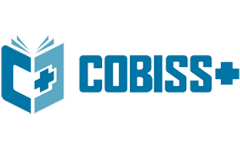Lack of Visibility of Eco-Labels: A Study on Consumer Deception
DOI:
https://doi.org/10.61841/z4ds4f24Keywords:
Sustainability, green advertising, eco-labels, eco-claims, consumer awareness, eco-labeling, pseudo eco-claims, green washingAbstract
This paper focuses on consumer deception and aims to understand the level of awareness of ecolabels amongst consumers, whether they fall prey to the deception of pseudo eco-claims and if so, what are the reasons for the persistence of this malpractice. It aims to answer the following questions, (1) why eco-labels are scarcely used and mostly go unnoticed while there is more awareness about regular labels, (2) how can consumers distinguish between eco-label and pseudo eco-claim, (3) is there a need to recreate the existing eco-labels which can represent an overall assessment of a product’s environmental burden over its entire life cycle. The main contributions of the paper are that it will help consumers from falling for the deceptive practices which only claim to offer eco-friendly products and it will also benefit the companies which actually stand up to their eco-claims but often get overshadowed by the existence of pseudo eco-claims. A questionnaire survey was conducted which targeted individuals from the Indian demographics who regularly purchase items from the market. The objectives of the survey were to understand the individual’s level of awareness about the eco-labels, if they could recognize ecolabels and regular labels and if they could distinguish between eco-labels and eco-claims. The systematic reviewing of earlier research literature revealed that there is a lack of consumer awareness and that there is a dire need for law enforcement. This paper highlights the fact that in spite of the existence of government accredited eco-labels and laws to stop these deceptive practices, it is still practiced. It was found that these labels mostly go unnoticed or are absent from the product and the explicit visibility of pseudoeco-claims leads to the consumers blindly accepting the authenticity of these products or getting skeptical about all eco-products/labels. In the absence of specific logos for each phase of eco-transitions, which various companies are currently going through, there arises the problem of ambiguity about what the term ‘sustainability’ stands for. The present study will contribute significantly to the existing body of knowledge in regard to creating awareness of existing pseudo eco-claims and bring about a new standard for eco-labeling. It will also benefit industries whose eco-claims are genuine.
Downloads
References
1. Aji, H. M. and Sutikno, B. 2015. The Extended Consequence of Greenwashing: Perceived Consumer Skepticism. International Journal of Business and Information, vol. 10, no. 4.
2. Banerjee, S., Gulas, C.S., andIyer, E. 1995. Shades of green: a multidimensional analysis of environmental advertising. Journal of Advertising, vol. 24, no.2, 21-31.
3. Carlson, L., Grove, S.J. and Kangun, N. 1993. A Content Analysis of Environmental Advertising Claims: A matrix method approach, Journal of Advertising, vol. 22, no. 3.
4. Choice, T.2010. The sins of greenwashing: home and family edition. Retrieved from: www.sinsofgreenwashing.org
5. Coleman, L.J., Bahnan, N., Kelkar, M. and Curry, N. 2011. Walking the walk: How the theory of reasoned action explains adult and student intentions to go green. Journal of Applied Business Research, vol. 27, no.3,107-116.
6. Delmas, M.A. and Burbano, V.C. 2011,The drivers of greenwashing, California Management Review
7. Haytko, D.L. and Matulich, E. 2008. Green advertising and Environmentally responsible consumer behaviours: Linkages Examined, Journal of Management and Marketing Research, vol. 1, pp. 2-11.
8. Katait, S. K. 2017.Greenwashing in India an Alarming Issue: Misleading and Deceptive Environmental Claims in Advertising. International Journal of Commerce and Management Research, vol. 3, no. 2, pp. 91-97.
9. Krafft, J. and Saito, R. 2014. An Experimental Study about the Effects of Misleading and Deceptive Environmental Claims in Advertising, Bachelor thesis/ Marketing, University of Gothenburg, School of Business, Economics and Law.
10. Mishra, S. and Mishra, A. 2016. Green a Perfect Deception for Consumers: A Case Study. Suresh Gyan Vihar University International Journal of Environment, Science and Technology, vol. 2, no. 1, pp. 28-30.
11. Paço, A. M. F. & Reis, R. 2012.Factors affecting skepticism towards green advertising. Journal of Advertising, vol. 41, no. 4, pp. 147-155.
12. Parguel, B., Benoit-Moreau, F. and Russell, C. A. 2015. Can evoking nature in advertising mislead consumers? The power of ‘executional greenwashing’, International Journal of Advertising: The Review of Marketing Communications, vol. 34, no. 1, 107-134.
13. Richards, L. 2013. Examining Green Advertising and its Impact on Consumer Skepticism and Purchasing Patterns. The Elon Journal of Undergraduate Research in Communications, vol. 4, no. 2.
14. Schmuck, D., Matthes, J., Naderer, B. 2018. Misleading Consumers with Green Advertising: An Affect Reason-Involvement Account of Greenwashing Effects in Environmental Advertising. Journal of Advertising, vol. 47, no. 2, pp.127-145.
15. Segev, S., Fernades, J. and Hong, C. 2016, Is your product really green? A content analysis to reassess green advertising, Journal of Advertising, vol. 45, no. 1, 85-93.
16. Stokes, S. A.2007. Deception in Environment Advertising: Consumers’ Reactions to Greenwashing. A Thesis, Master of Science, Department of Journalism and Mass Communication, College of Arts and Sciences, Kansas State University, Manhattan, Kansas.
17. Vazquez-Brust, D.A. and Sarkis (eds.), J. 2012. Green Growth: Managing the Transition to a Sustainable Economy. Greening of Industry Network Series 1, pp. 287-308.
18. Young, W., Hwang, K., McDonald, S. and Oates, C. J. 2010. Sustainable consumption: Green Consumer Behaviour when purchasing products, Sustainable Development.
Downloads
Published
Issue
Section
License
Copyright (c) 2020 AUTHOR

This work is licensed under a Creative Commons Attribution 4.0 International License.
You are free to:
- Share — copy and redistribute the material in any medium or format for any purpose, even commercially.
- Adapt — remix, transform, and build upon the material for any purpose, even commercially.
- The licensor cannot revoke these freedoms as long as you follow the license terms.
Under the following terms:
- Attribution — You must give appropriate credit , provide a link to the license, and indicate if changes were made . You may do so in any reasonable manner, but not in any way that suggests the licensor endorses you or your use.
- No additional restrictions — You may not apply legal terms or technological measures that legally restrict others from doing anything the license permits.
Notices:
You do not have to comply with the license for elements of the material in the public domain or where your use is permitted by an applicable exception or limitation .
No warranties are given. The license may not give you all of the permissions necessary for your intended use. For example, other rights such as publicity, privacy, or moral rights may limit how you use the material.
















